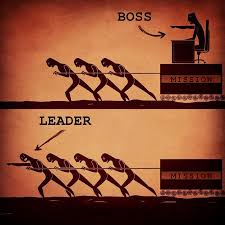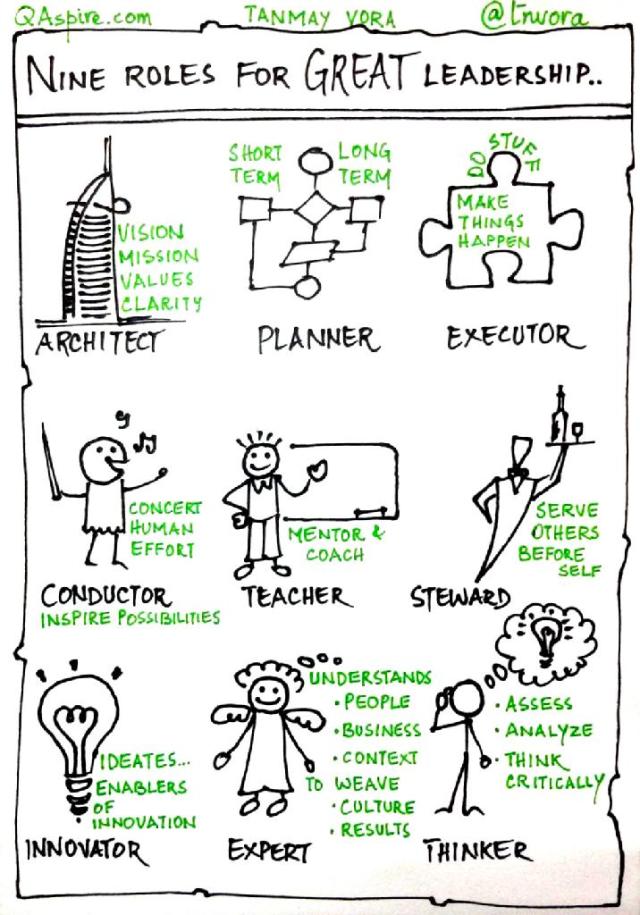What is the role of leadership?
Leadership has many roles and key areas of expertise. As an architect of the future, the leader not only needs to have a clear and compelling vision of the future that is aligned to core values, they also need to make sure their people are engaged, share that vision and understand the reason why Planning is critical. Perhaps one of the most critical areas of leadership is great execution.
Roles
1. Self-assessment:
Effective leaders periodically take stock of their personal strengths and shortcomings. They ask: “What do I like to do? What am I really good at?” “What are my areas of weakness, and what do I dislike doing?”
Knowing your areas of weakness does not make you weak; on the contrary, it allows you to delegate to others who have those abilities, in order to achieve the common goal. Rather than clinging to the false belief that they can do it all, great leaders hire people who complement, rather than supplement, their skills. Working on your areas of weaknesses will improve your leadership ability – and recognizing them makes you more human.
2. Sharp perception:
Do you know how people really perceive you? Effective leaders do. They have an easy level of honest communication with their teams and their peers, and a thorough understanding of how they are perceived. Testing others’ perception of you can be as simple as observing their behavior. Are your co-workers and team members relaxed around you? Does all conversation stop when you enter the room?
If you really want to know what people think, just ask them. You may receive feedback that you’re not listening or showing appreciation as well as you could be. If you’ve established an environment of honest and open communication, you should be able to ask about your good qualities and the areas you need to improve on. Your staff will appreciate your effort.
3. Responsive to the group’s needs:
Being perceptive can also help a leader be more effective in knowing the needs of the team. Some teams value trust over creativity; others prefer a clear communicator to a great organizer. Building a strong team is easier when you know the values and goals of each individual, as well as what they need from you as their leader.
4. Knowing the organization:
Effective leaders know the organization’s overall purpose and goals, and the agreed-upon strategies to achieve these goals; they also know how their team fits into the big picture, and the part they play in helping the organization grow and thrive. Full knowledge of your organization – inside and out – is vital to becoming an effective leader.
5. Communication :
Good communication skills are required at every level of business, but leaders must possess outstanding communication skills. Luckily, this is a skill that can be learned.
6. Motivating teams :
Inspiring others is the mark of an effective leader. Motivation is best done by example and guidance, not by issuing commands.
7. Team building :
Putting together strong teams that work well is another trait of great leaders. The opposite is also true: if a team is weak and dysfunctional, it is generally a failure in leadership.
8. Risk taking :
You can learn how to assess risk and run scenarios that will help you make better decisions. Great leaders take the right risks at the right time.
9. Vision and goal setting :
A team depends on its leader to tell them where they are going, why they are going, and how they’re going to get there. People are more motivated when a leader articulates his or her vision for a project or for the organization, along with the steps – or goals – needed to achieve it.
A great leader will challenge and encourage, create and inspire, assess and analyse then align and mobilise talent to activate and deliver success.




Leaders must possess multicultural and relational intelligence that is only possible by deepening their awareness of their own leadership identity development.
ReplyDeleteCommunication Skills Training in Bangalore | MS Office Training in Bangalore